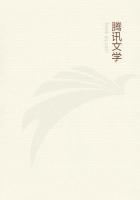Criticism may torment this sense or that sense out of it, but at the end of the ends the " Divine Comedy " will stand for the patriotism of medieval Italy, as far as its ethics is concerned, and for a profound and lofty ideal of beauty, as far as its aesthetics is concerned. This is vague enough and slight enough, I must confess, but I must confess also that I had not even a conception of so much when I first read the "Inferno." I went at it very simply, and my enjoyment of it was that sort which finds its account in the fine passages, the brilliant episodes, the striking pictures. This was the effect with me of all the criticism which I had hitherto read, and I am not sure yet that the criticism which tries to be of a larger scope, and to see things "whole,"
is of any definite effect. As a matter of fact we see nothing whole, neither life nor art. We are so made, in soul and in sense, that we can deal only with parts, with points, with degrees; and the endeavor to compass any entirety must involve a discomfort and a danger very threatening to our intellectual integrity.
Or if this postulate is as untenable as all the others, still I am very glad that I did not then lose any fact of the majesty, and beauty, and pathos of the great certain measures for the sake of that fourth dimension of the poem which is not yet made palpable or visible. I took my sad heart's fill of the sad story of "Paolo and Francesca," which I already knew in Leigh Hunt's adorable dilution, and most of the lines read themselves into my memory, where they linger yet. I supped on the horrors of Ugolino's fate with the strong gust of youth, which finds every, exercise of sympathy a pleasure. My good priest sat beside me in these rich moments, knotting in his lap the calico handkerchief of the snuff-taker, and entering with tremulous eagerness into my joy in things that he had often before enjoyed. No doubt he had an inexhaustible pleasure in them apart from mine, for I have found my pleasure in them perennial, and have not failed to taste it as often as I have read or repeated any of the great passages of the poem to myself. This pleasure came often from some vital phrase, or merely the inspired music of a phrase quite apart from its meaning. I did not get then, and I have not got since, a distinct conception of the journey through Hell, and as often as I have tried to understand the topography of the poem I have fatigued myself to no purpose, but I do not think the essential meaning was lost upon me.
I dare say my priest had his notion of the general shape and purport, the gross material body of the thing, but he did not trouble me with it, while we sat tranced together in the presence of its soul. He seemed, at times, so lost in the beatific vision, that he forgot my stumblings in the philological darkness, till I appealed to him for help. Then he would read aloud with that magnificent rhythm the Italians have in reading their verse, and the obscured meaning would seem to shine out of the mere music of the poem, like the color the blind feel in sound.
I do not know what has become of him, but if he is like the rest of the strange group of my guides, philosophers, and friends in literature--the printer, the organ-builder, the machinist, the drug-clerk, and the bookbinder--I am afraid he is dead. In fact, I who was then I, might be said to be dead too, so little is my past self like my present self in anything but the "increasing purpose" which has kept me one in my love of literature. He was a gentle and kindly man, with a life and a longing, quite apart from his vocation, which were never lived or fulfilled.
I did not see him after he ceased to read Dante with me, and in fact I was instructed by the suspicions of my Italian friends to be careful how I consorted with a priest, who might very well be an Austrian spy.
I parted with him for no such picturesque reason, for I never believed him other than the truest and faithfulest of friends, but because I was then giving myself more entirely to work in which he could not help me.
Naturally enough this was a long poem in the terza rima of the "Divina Commedia," and dealing with a story of our civil war in a fashion so remote that no editor would print it. This was the first fruits and the last of my reading of Dante, in verse, and it was not so like Dante as I would have liked to make it; but Dante is not easy to imitate; he is too unconscious, and too single, too bent upon saying the thing that is in him, with whatever beauty inheres in it, to put on the graces that others may catch.














